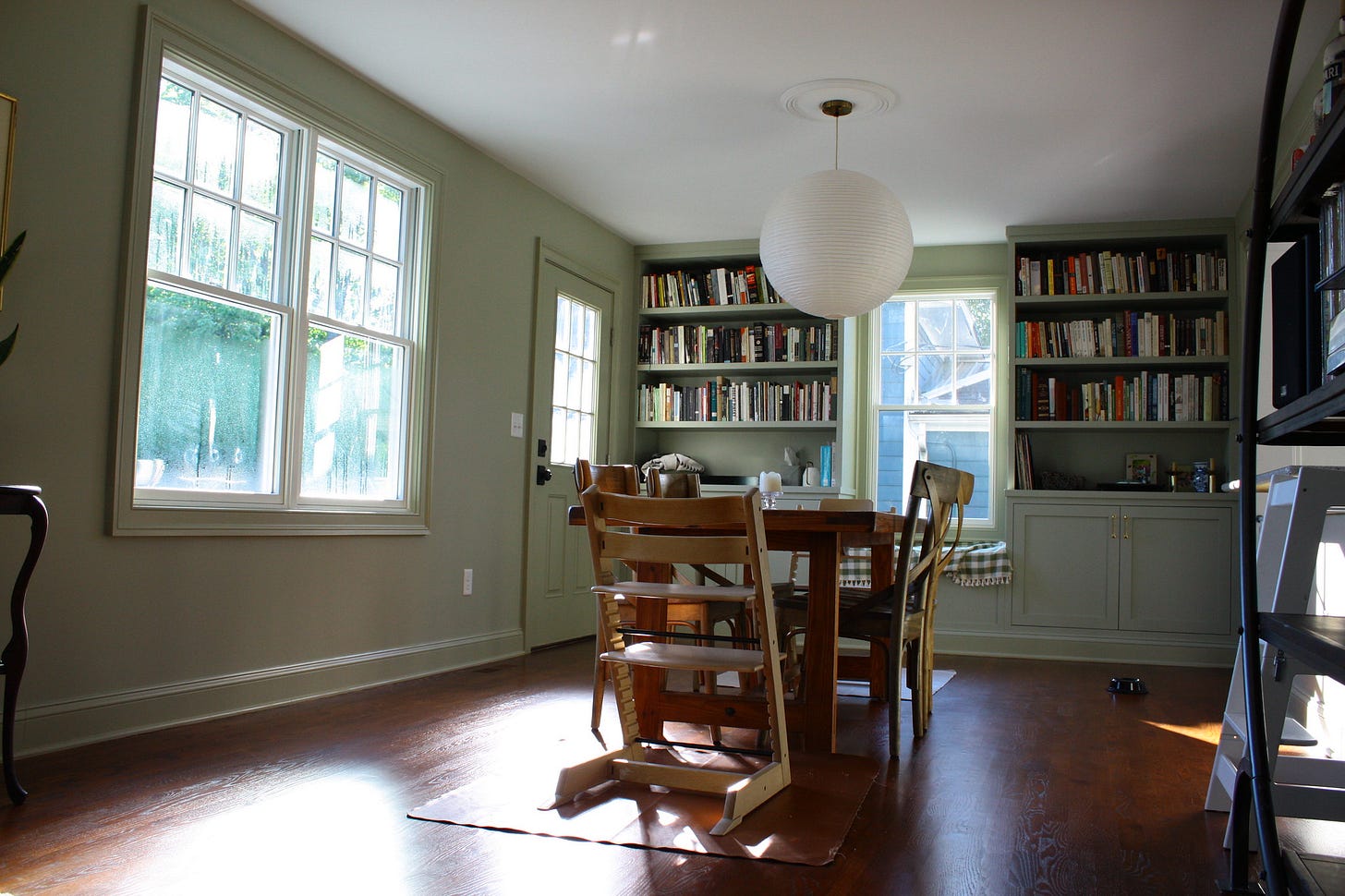Women of my generation feel a lot of revulsion toward the word “housewife.” The epithet is almost always used in a demeaning way, to describe an old-fashioned, perhaps air-headed woman who fusses over her home and small children all day long, maybe pausing to watch some TV before getting dinner on the table by the time Father gets home from the office.
I know lots of hardworking women and mothers, but this 1950s-era portrait doesn’t describe any of them. And I doubt it accurately described that many women in the 1950s, for what it’s worth.
I’d like to resurrect the word from its demeaning mid-century associations, even as I admit that may not be possible. In any case, it’s high time we updated how we think about housework.
I’m perpetually interested in reclaiming the virtue of keeping house. This means reckoning with some of its historical baggage, which has been mightily gendered, and considering paths forward for a better relationship with our homes.
I have a lot of questions
When did we start thinking of housework as a demeaning chore, a task for the lowliest person? Why do we think it’s less valuable than other kinds of work?
Is it a privilege to enjoy housework?
What does it mean to be a good “housewife” if I also have a full-time job outside of the home, which I very much enjoy?
Why are both terms “housewife” and “househusband” considered degrading today?
Why do couples/housemates fight about housework so much? What seems so unfair and frustrating about it, by default?
How does a disordered home affect our mental/spiritual/emotional well-being? And why? Have humans always been this way? (Do other animals feel stress if their homes are untidy?)
In what ways has the American empire, with its attendant devils of materialism and consumerism, warped our relationship with our homes?
What can we learn from indigenous communities about keeping house? What did our homes (and our practices of housekeeping) lose when we began to worship the empire, in other words?
What does a healthy relationship with our homes look like? What about an unhealthy one?
I’m sorry, really and truly, but it seems likely I will have to write more about this to find out what I think. As you can see, I do not know anything at all.
What am I going on about, really?
The pandemic forced us all inward, in more ways than one. We thought about our homes much more than we did previously. The nationwide spike in home/yard renovations, to which we are party, is only a small component of this trend.
And yet, the pandemic also made housework feel so much more burdensome. At least, it did to me.
I appreciate my home more when I get some time away from it. If I’m cooped up inside all day, for days on end, I start to feel crazy. Every little problem bothers me. But if I am away, or if I go outside for prolonged periods, the experience of coming home is soothing and grounding.
Accordingly, it is my goal to create and preserve this atmosphere of comfort and peace in my home. This means I think a great deal about seemingly trivial “womanly” things, like vacuuming, organizing drawers, arranging furniture and art, and hosting dinner guests. Chiefly, I want my home to be a place of refuge and inspiration for my husband and children—and our family and friends. Cultivating this environment is perpetually on my mind.
My home is not a machine
This is a revelation that I am coming to, slowly. I am tempted to consider housekeeping as if I were running a business. What are my sunk costs? Where are my profit margins? How can I enhance productivity over the next quarter?
But these are not the right questions, and this is not the right mental model.
Our homes are living. They move and change with us. They hold us and shape us at the same time. We are creators and masters of our homes, surely, but we are both being formed by one another all the time.
Money quote, from a book I’d very much like to re-read:
“Through housewifely care a house recovers not so much its originality as its origin. And what a great life it would be if, every morning, every object in the house could be made anew by our hands, could ‘issue’ from our hands. In a letter to his brother Theo, Vincent van Gogh tells him that we should ‘retain something of the original character of a Robinson Crusoe.’ Make and remake everything oneself, make a ‘supplementary gesture’ toward each object, give another facet to the polished reflections, all of which are so many boons the imagination confers upon us by making us aware of the house’s inner growth.”
— Gaston Bachelard, The Poetics of Space (1958)
More on all this later, I’m afraid. I have sticky floors to clean.





One of my favorite writers, Meg Conley, contemplates the questions you have and is focused on the multitude of meanings of "taking care of a home." https://homeculture.substack.com/